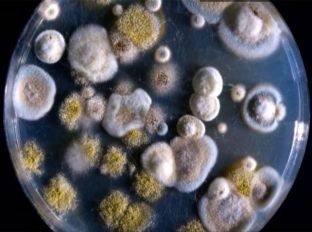Inflammatory infections of the female genital organs remain today a problem that requires special attention, as they often cause serious complications that affect both the general health of a woman and her reproductive capabilities. Infertility caused by adhesive processes in the small pelvis is today a problem for millions of women. Even in the presence of a disease, the timely start of conservative methods of treating the inflammatory process will help not only get rid of the problem, but also prevent all its consequences.
The main methods of conservative treatment of inflammatory processes in gynecology
Conservative treatment of inflammatory processes in the reproductive organs of a woman involves the appointment of drug therapy, as well as the use of physiotherapy methods. The basis of successful conservative treatment is its timely start and competent selection of a therapeutic regimen, individually selected in each individual case. Only adhering to all these conditions can completely eliminate the inflammatory process, restore the function of the reproductive organs and avoid the terrible complications of inflammatory diseases of the organs of the female reproductive system.
Treatment of inflammatory processes in gynecology:
- antibacterial therapy as a method of treating inflammatory processes in women;
- other components of drug therapy for inflammatory processes in gynecology;
- physiotherapeutic methods of treatment of inflammatory processes in gynecology.
Antibacterial therapy as a method of treating inflammatory processes in women
The main place in the conservative treatment of inflammatory processes of the female genital organs is given to antibiotic therapy. The drug must be selected taking into account the spectrum and mechanism of its action, side effects and the etiological factor that caused the disease. To date, antibiotics of the penicillin series, cephalosporins, macrolides, fluoroquinolones, aminoglycosides, lincosamines and tetracyclines are actively used in gynecology. When choosing an antibiotic, the following factors should be considered:
- Penicillins are considered the least toxic antibacterial drugs. They are active against both Gram-positive and Gram-negative anaerobes. At the same time, many microorganisms are resistant to these drugs, so only protected penicillins should be prescribed to the patient;
- cephalosporins are also low-toxic and highly active antibacterial drugs, but they are ineffective against enterococci, methicillin-resistant streptococci, mycoplasmas, chlamydia and some anaerobic pathogens;
- fluoroquinolones have a very broad spectrum of antimicrobial activity, they work well against gram-negative bacteria, but are less active against staphylococci and anaerobes.

Other components of drug therapy for inflammatory processes in gynecology
For the treatment of inflammatory processes of the female genital organs, in addition to antibacterial drugs, it is recommended to use the following groups of medicines:
- antimycotic drugs - used in gynecology to prevent and treat fungal infections;
- infusion detoxification therapy - recommended for severe intoxication of the body to improve the rheological and coagulation properties of blood, eliminate electrolyte disorders, restore the acid-base balance of the body;
- antihistamines - are used due to the fact that any inflammatory process causes increased sensitivity to tissue decay products and antigens of microbial cells. In addition, anti-inflammatory drugs reduce the body's response to histamine, reduce capillary permeability and relieve spasm of smooth muscle tissues.
Physiotherapeutic methods of treatment of inflammatory processes in gynecology
A highly effective method for the treatment of inflammatory processes in the reproductive organs is the method of transfusing one's own blood irradiated with ultraviolet rays. This procedure eliminates coagulation disorders, promotes detoxification of the body, gives a bactericidal and virocidal effect. In the acute phase of the inflammatory process, patients are also recommended to use UHF on the hypogastric region, as well as electrophoresis. In the treatment of endometritis, hysteroscopy is recommended, followed by washing the uterine cavity with solutions of antiseptic preparations. The effectiveness of conservative therapy is evaluated already 12 hours after its start. Signs of the effectiveness of conservative therapy are:
- improvement of the patient's well-being;
- decrease in body temperature;
- disappearance of symptoms of peritoneal irritation;
- normalization of blood counts.






Add a comment